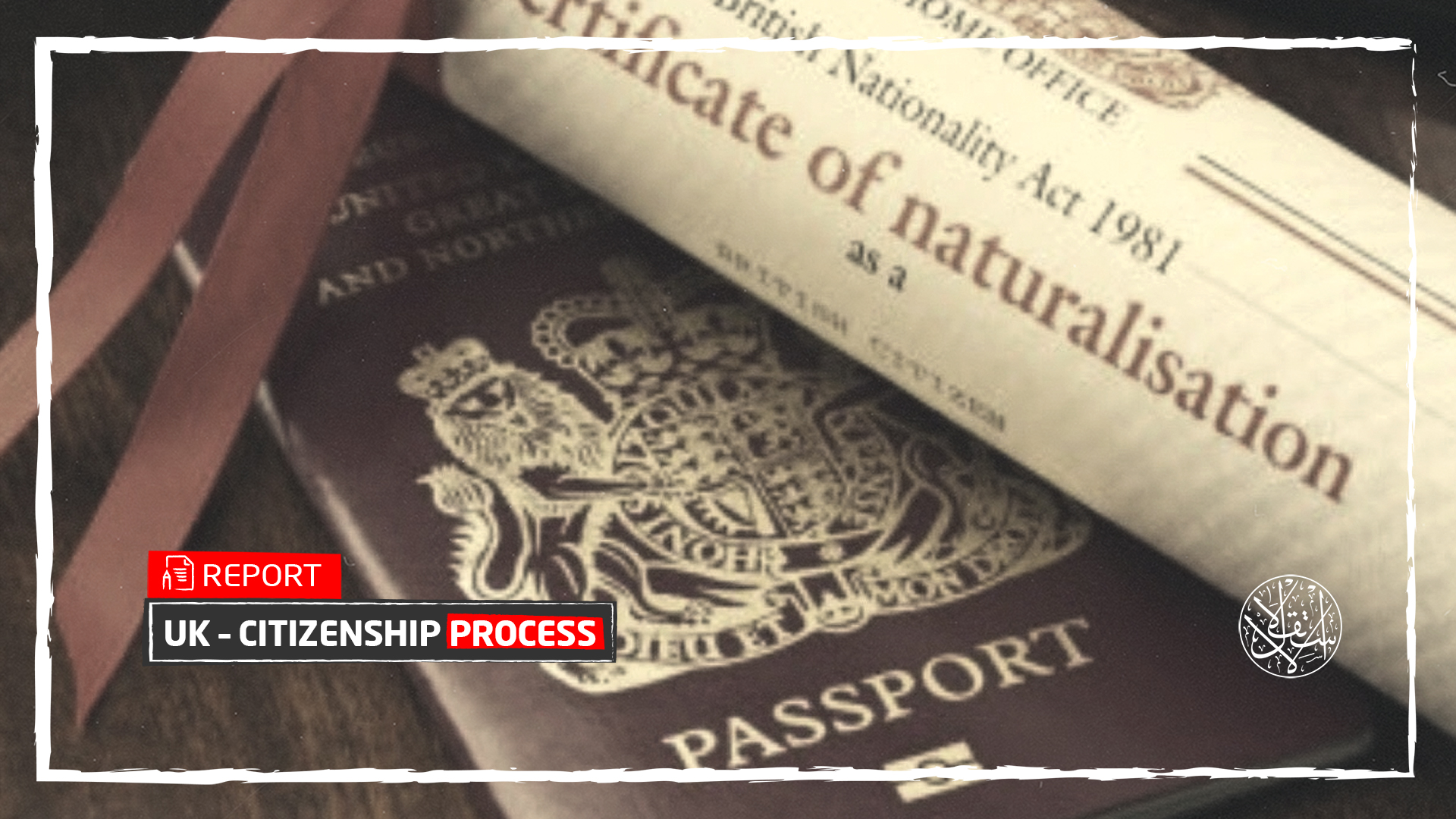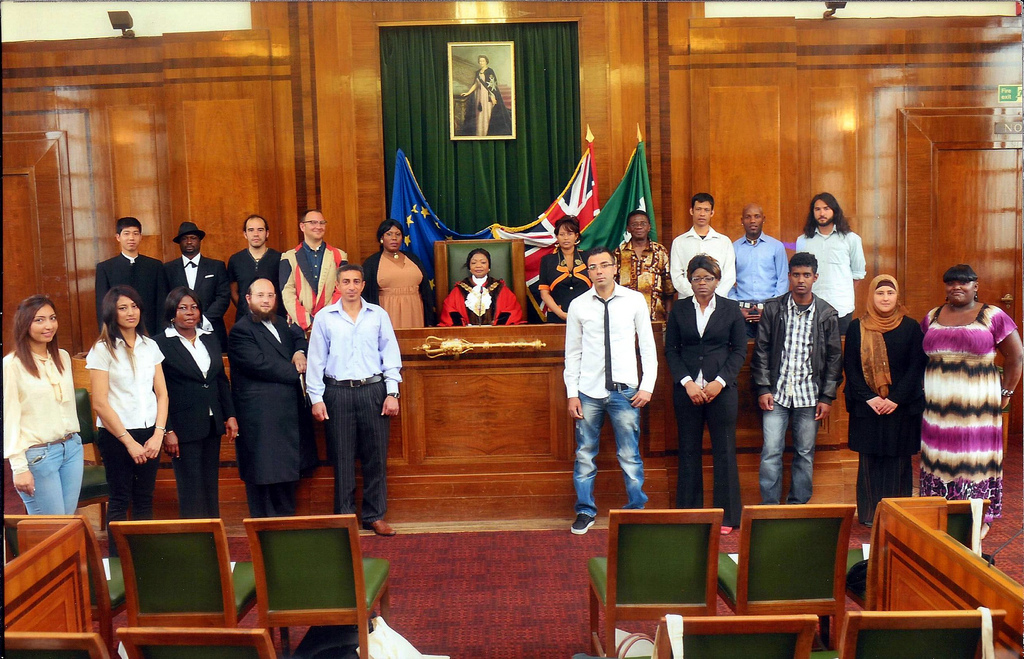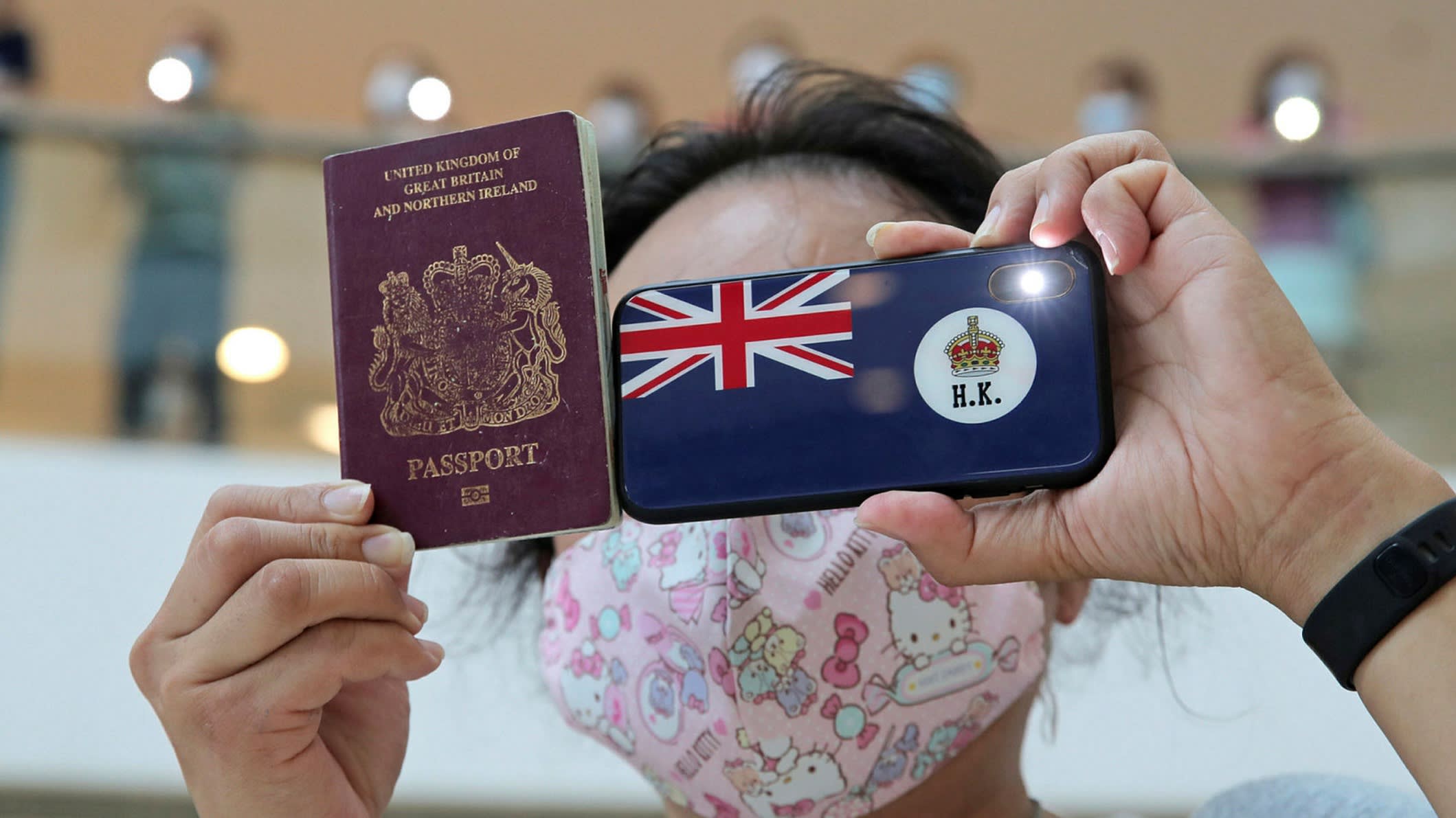British Citizenship Process: Strengthening Immigrants’ British Identity or Further Marginalizing Them?

Obtaining British citizenship is one of the most difficult processes in the world, whether in terms of material cost or excessive requirements. For instance, the citizenship exam questions were highly criticized for their inadequacy. How can this process lead to further marginalization of immigrants instead of enhancing their British values?
Syrian filmmaker, activist, and refugee, Hassan Akkad, has succeeded in proving that the questions asked to British citizenship applicants are difficult even for the natives.
Akkad tested 1,717 Britons questions from the citizenship test that are usually asked, British citizenship seekers. Ironically, 99% of native Britons failed the exam.
Of those tested, only 15 Britons succeeded, and the activist cited this number to illustrate the suffering experienced by those seeking British citizenship.
Commenting on the results, Akkad posted on his Instagram account: "The UK’s citizenship process subjects immigrants to requirements intended to enhance their identification with ‘British values.’ Now that you have done the test yourselves. Do you think that the current process does that, or does it aggravate immigrants’ marginalisation?”
He emphasized that the purpose of the survey wasn’t in any way to prove that British people aren’t clever enough to pass the test themselves; it was a way to make a point and raise a bit of awareness.
Silly Questions
The UK citizenship process is very frustrating and extremely costly (roughly £1500). One of the many requirements to become a British citizen is to pass a citizenship test.
Akkad explained that Citizenship applicants must answer about 3,000 questions, including the approximate age of Big Ben, the height of the London Eye in feet and meters, if Churchill was voted the most influential Briton in 2002, and that Mexico was not colonized by Britain.
While there are questions about voting and parliament, the handbook is more concerned with Monty Python, roast beef, pantomimes, Edward Elgar, and allotments, than the National Health, schools or emergency services.
Doctor Amy Clarke, an ESRC Postdoctoral Fellow in Queen Mary's School of Geography, commented on the test questions by saying that the test seems to prioritize cultural integration into a particularly white Anglo nation over social and political integration. Neglecting the fact that citizenship is fundamentally about political membership of the state. It’s also possible to see the whole process as part of a broader effort to demonstrate that the government is “in control” and that migrants who settle or naturalize in the UK are knowledgeable and committed. “Effectively, it’s a project aimed at reassuring ‘us’ that ‘they’ are the kind of migrants ‘we’ want,” she said.
Cash Cow
Becoming British is one of the most strenuous and expensive citizenship processes in the world. The tens of thousands of immigrants who get UK citizenship each year go through years of preparation and spending amounts between £5,000 and £10,000. As if to add insult to injury, for a family to register its child as British, they should pay an additional £1,012.
The BBC reported that: “The citizenship fees alone are calculated to have generated more than £100m in profit for the Home Office in the last five years.”
It added: “It might be argued this represents good business for the Home Office, but it depends on what the country wants to achieve. Do we want foreign residents to become British or not? And if we think citizenship is good for integration and cohesion, are we right to make it so expensive and complicated? Becoming a citizen means passing the Life in the UK test, a general knowledge quiz on British culture, laws, and history.”
Many immigrants wonder if the government really believes that this long and complicated preparation for a knowledge exam is a way to test their ability to get integrated into British society or only a strange ritual to show that they are unqualified for citizenship.
Deal for Citizenship
The Former UK Home Secretary Jacqui Smith wrote about "a deal for citizenship." She pointed out that: “In return for enjoying the liberty, tolerance, opportunity and diversity of the UK, all who live in the country should learn our language, play by the rules, obey the law and contribute to the community."
The most important point in her proposal was the idea that the process to get citizenship should be sped up for migrants who do actively contribute to their community.
The logic of linking citizenship and civic responsibility was attractive because it reminds the whole population that giving is a core value in the UK and that there is more to being British than obeying the law.
Volunteering and working for the group interest and for the country’s national benefits is definitely more valuable than a "pub quiz" on the correct ingredients of an Ulster fry.
The New Citizenship Law
Concern looms over minorities in Britain, led by the Muslim community, after the success of the government of Boris Johnson in passing the controversial nationality and borders bill in the House of Commons with 298 votes to 231 against, pending a vote on it in the House of Lords, after which it will enter into force.
The submitted draft includes many amendments to the citizenship law, threatening the future presence of Muslims in the country. The law primarily targets asylum seekers to Britain, which prompted the Muslim Council of Britain (the largest gathering of Muslims there) to organize a series of vigils in front of the Prime Minister’s headquarters in London to denounce this law and to demand its abolition.
Since its introduction in Parliament, this law has sparked a wave of controversy and political, legal and security debates between various currents inside and outside Britain. In light of the unjustified insistence of the Johnson government to pass it despite the objection of many human rights entities to its amended provisions that grant unlimited powers to the Interior ministry to manipulate the lives and future of immigrants and members of minorities in Britain, even those who hold British citizenship.
Sources
- Citizenship test: How hard should it be to become British?
- The new citizenship law: British Muslims' fears escalate [Arabic]
- A Syrian refugee takes a citizenship test for 1,717 Britons, and 99% of them fail [Arabic]
- Why does the citizenship bill in Britain raise concerns among minorities? [Arabic]
- Britain still doesn’t know the purpose of the Life in the UK citizenship test – and it shows














